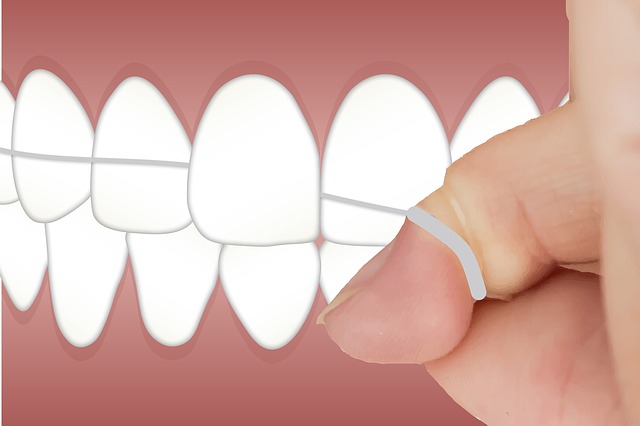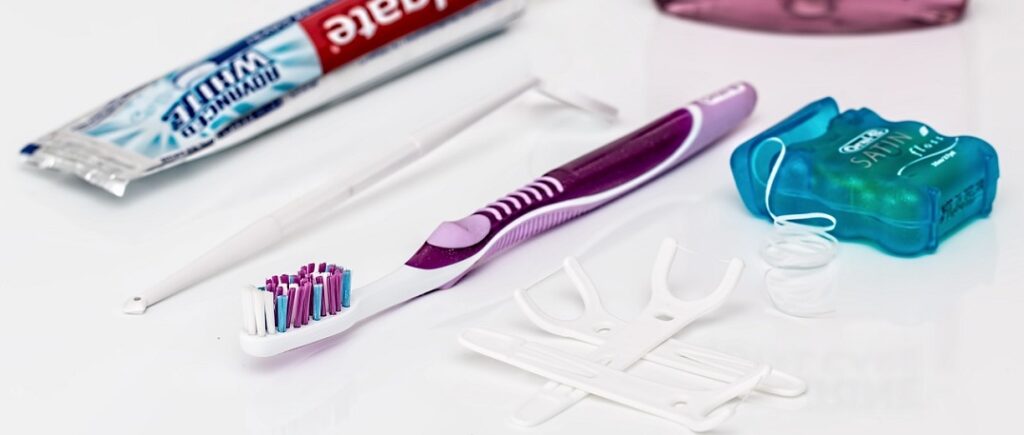
If you have ever brushed your teeth and then flossed right after, then you know just how important flossing is. If you’ve never done this before and you don’t make time to floss at least once a day, then you fit in with the majority of Americans who skip this practice.
While there’s been some discrepancy on whether flossing is necessary, dentists continue recommending that you do. There’s just no other way to remove food particles trapped in between teeth that a toothbrush can’t reach. And when these food particles aren’t removed, your gums become inflamed and your teeth will start decaying.
WebMD mentions a great point—when the Associated Press claimed flossing doesn’t have any proven health benefits, this didn’t mean dental experts were on board. While it’s difficult to find a direct connection with the effects of flossing in preventing cavities, it is clear that using dental floss does play a role in gum disease prevention.
Why Is It Important To Floss Your Teeth?

To understand the benefits of flossing, it’s easier to look at what happens if you don’t floss. As mentioned above, flossing is what removes food left between your teeth. When these food particles are not removed, bacteria in your mouth causes swelling below your gum line.
This irritation becomes periodontitis, a chronic inflammatory disease that leads to receding gums. If this is ignored, your gums will continue to recede and you could begin losing teeth.
Is It Ever Too Late to Start Flossing?
While it’s easier to instill a habit of flossing to your daily routine when you are younger, it’s never too late to start flossing. Regardless of what age you are, the benefits of flossing are an important part of your oral care routine. When you first start flossing, your gums will most likely bleed. However, this should clear up after a week of flossing consistently.
While the bleeding when you first start flossing isn’t pleasant, you will notice a couple of other things that happen when you floss regularly:
- Your mouth will feel cleaner
- Your breath will smell better
- The terrible taste in your mouth will go away
When To Floss
If you’re wondering how many times you should floss a day and whether you should be brushing before or after, the answers will vary. Dentists recommend flossing at least once, but based on what you’ve eaten, you may find the need to floss after certain meals. Pay close attention to your teeth, no one wants a piece of lunch lodged in between their teeth the entire day.
As far as whether brushing your teeth comes first or second, any flossing is better than avoiding it. However, the American Academy of Periodontology states that flossing first helps remove dental plaque best. You may also notice that your mouth will feel cleaner when you choose to floss first and then do a fuller cleaning by brushing afterward.
Are you having hard time finding affordable dental care from dental professionals? Our dentists are trusted, experienced, and conveniently-located in Newport Beach!
Finding a local dentist is important, but it’s also very important that the dental provider offers affordable dental services- without compromising quality. Don’t worry about calling all the doctors in your area to find out what you need to know. 4Smile can help you search for trusted and verified dentists in your area, check their rates and reviews, chat with them, and book your appointment in just a few clicks.
Are There Any Additional Health Benefits Of Flossing?
Flossing benefits don’t just apply to your oral health, they extend to your overall health. Because your mouth is an entryway to the rest of your body, you need to practice good oral hygiene to lead a healthy life. Besides keeping your mouth clean, studies suggest regular flossing may be able to do the following:
- Prevent gingivitis– While plaque can be expected, an excessive amount of buildup on your gum line will cause your gums to swell. This inflammation, known as gingivitis, will lead to an infection if untreated. This infection becomes periodontitis, a painful gum disease. Flossing enables you to remove this plaque buildup before it becomes too late.
- Control diabetes– – When you avoid flossing, bacteria in your mouth continue to grow. An increase in oral bacteria affects your blood glucose levels.
- Reduce the risk of heart disease– Oral bacteria seen in patients with gingivitis can enter your bloodstream to your organs. Over time, this can lead to an increased risk of heart disease.
- Reduce the risk of respiratory disease– Oral bacteria can travel from your mouth through your throat and into your respiratory system. This increases your risk of bronchitis and pneumonia.
An average pack of floss costs a couple of dollars and lasts a month or so. In addition to being inexpensive, flossing doesn’t take up a lot of time.
So, what’s holding you back? This small addition to your daily routine will make a huge difference in your health. Start flossing today to see the difference.




